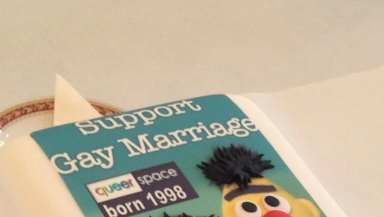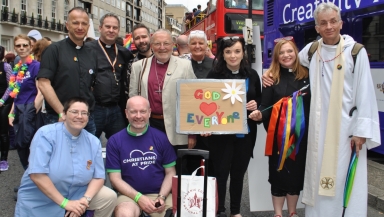
The Equality Commission in Northern Ireland is supporting a case against a family bakery that declined an order for a cake bearing the slogan 'Support gay marriage'. The case will be heard in Belfast on 26-27 March.
The case is not about a 'gay cake' as if you could have such a thing. In fact it has very little to do with sexuality or gay rights – the McArthurs, who own Ashers, did not know the sexual orientation of the customer. They discriminated against an idea, not a person and this distinction is important. You are allowed to do the first – in fact it is critical in a healthy democratic society – but you are rightly not allowed to do the second.
It is encouraging to see that people of all faiths and none are supporting Ashers Baking Company – 71 per cent of adults in Northern Ireland think it is wrong for the ECNI to take them to court, according to a survey commissioned by the Christian Institute. The polling suggests that people in Northern Ireland recognise this case for what it is – a fundamental attack on political and religious freedom. In the poll, which was conducted by ComRes, 90 per cent of respondents agree that equality laws should be used only to protect people from discrimination and not to force people to say something they disagree with.

Aidan O'Neill QC of the Matrix Chambers in London has written a legal opinion on the case for the Christian Institute, who are supporting Ashers. He is concerned about the wider implications of forcing someone to express an opinion they disagree with – the freedom of non-expression. Regardless of one's views on gay marriage, this case should unite everyone who believes in civil and religious liberty. Surely the right of an individual not to be offended should not trump the freedom of conscience, religion and belief of everyone.
Equality is important, but it must be held in tension with rights and responsibilities and in the context of the much richer notions of dignity and justice. When equality becomes the sole lens through which a situation is viewed, distortions like the Ashers case can occur. The vast majority of people in Northern Ireland think public funds should not be spent pursuing Ashers through the courts. The irony is that some end up supporting both sides – through their taxes and their charitable giving.
If this case is lost, conscience and religion will have been effectively banished from the public square. It is not about special protection for Christians. The concern is that the Equality Commission would decide which political and religious views are acceptable and which are not. The Chief Commissioner said last week that Christians should "either look at the law or maybe that [baking] is not the business they should be in". His suggested solution that Christians should stop being printers, florists or bakers is very worrying.
At the same time this case should challenge us as Christians to exercise our conscience in all areas – from fair wages to ethical sourcing of products. The late John Stott grew concerned about selective discipleship: "choosing those areas in which commitment suits us and staying away from those areas in which it will be costly. But because Jesus is Lord, we have no right to pick and choose the areas in which we will submit to his authority."
Peter Lynas is the director of Evangelical Alliance in Northern Ireland and a former barrister. He will be tweeting about the case @peterlynas
















